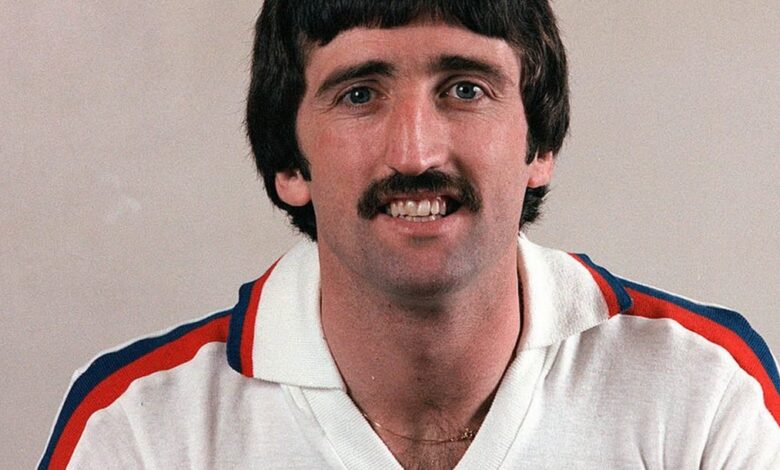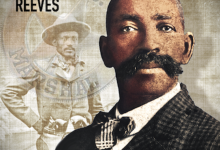How Did David Johnson Die? Former Liverpool and England Striker Cause of Death Explained

David Johnson, a former striker for Liverpool, Everton, and England who was one of just two players to score in derbies for both Merseyside powerhouses, has passed away at the age of 71.
How Did David Johnson Die?
David Johnson, a 71-year-old Liverpool legend, passed away on November 23,2022. Only two players, including the former England international striker, have scored in Merseyside derbies for both Everton and the Reds.
Terrible news being broken this morning that David Johnson has passed away.
'The Doc' won it all at Anfield, with the 1981 European Cup Final being a highlight of his career.
He's also one of the few players to have represented both Merseyside clubs.
RIP ❤️ #YNWA pic.twitter.com/VwYJMDaLYq
— Empire of the Kop (@empireofthekop) November 23, 2022
David Johnson Cause of Death
According to reports, David Johnson had been ill for a while after being recently diagnosed with throat cancer.
David Johnson cause of death was not fully disclosed yet. There is no information available about David Johnson cause of death at the moment.
Rest in peace, Doc.
We’re deeply saddened by the passing of David Johnson.
The thoughts of everyone at Liverpool Football Club are with David’s family and friends.
— Liverpool FC (@LFC) November 23, 2022
Ngnews247.com have been trying to reach out to the family and relatives for comment on the incident. So far no responses have been received. We will update the page once enough information is available. More information on David Johnson cause of death will be added soon.
Who was David Johnson?
Forward David Edward Johnson, who played professionally football and won several titles for Liverpool in the 1970s and 1980s, was born on October 23, 1951.
In addition to the England national team, he also played for Ipswich Town, Everton, and other teams.
Career
Everton
Young Johnson initially signed for Everton, a team that competes with Liverpool, but after showcasing his talent in a few games, Liverpool manager Bill Shankly pressed Everton counterpart Harry Catterick to let Johnson leave but was rejected.
On January 8, 1971, at Turf Moor, Johnson made his 19-year-old Everton debut against Burnley in a 2-2 league match.
Later in 1971, Johnson scored for Everton in a Merseyside Derby match.
Ipswich Town
Johnson joined Bobby Robson’s Ipswich Town in November 1972 in exchange for Rod Belfitt, the club’s leading scorer, and £40,000.
On November 4, 1972, at Portman Road, he made his Ipswich debut against Leeds United in a 2-2 tie.
On December 2 of the same year, in Maine Road’s 1-1 draw with Manchester City, he scored his first goal for the team.
Johnson had assisted Ipswich in reaching the Texaco Cup final, where they faced fierce East Anglian rivals Norwich City, at the end of his first season.
Ipswich won the two-leg match 4-2 overall after taking both legs by a combined score of 2-1.
Four Seasons at Ipswich
He was a tenacious, play-linking forward who scored 35 goals in his four seasons with the club. He also had a successful combination with Trevor Whymark.
Johnson was called up by Don Revie for his first England cap while playing for Ipswich.
On May 21, 1975, at Wembley, he made his professional debut in a British Home Championship game.
Johnson scored both goals in a 2-2 tie for Wales in the away team’s game.
At Wembley, he also scored twice in a 3-1 triumph over the world champions Argentina, Diego Maradona’s debut game in England.
Johnson was a member of Ron Greenwood’s team for the 1980 European Championships, but he finished third to Garry Birtles and Paul Mariner, who took his position at Ipswich. In those games, he scored six goals and earned eight caps.
Johnson refused to leave, therefore Tottenham Hotspur made an unsuccessful offer of about £200,000 in 1976.
He did, however, go back to Merseyside after making 137 league appearances for Ipswich.
Liverpool
Johnson joined Liverpool for a record-breaking £200,000 fee.
On August 21, 1976, at Anfield, he made his club debut in a 1-0 league victory over Norwich.
He got his first goal a week later on the 28th, but Birmingham City defeated Liverpool 2-1 at St Andrews despite his goal.
He frequently filled in for Kevin Keegan in his debut season, competing with John Toshack and David Fairclough for the role.
As the season came to a close, Liverpool was vying for a historic treble of the League championship, FA Cup, and European Cup.


